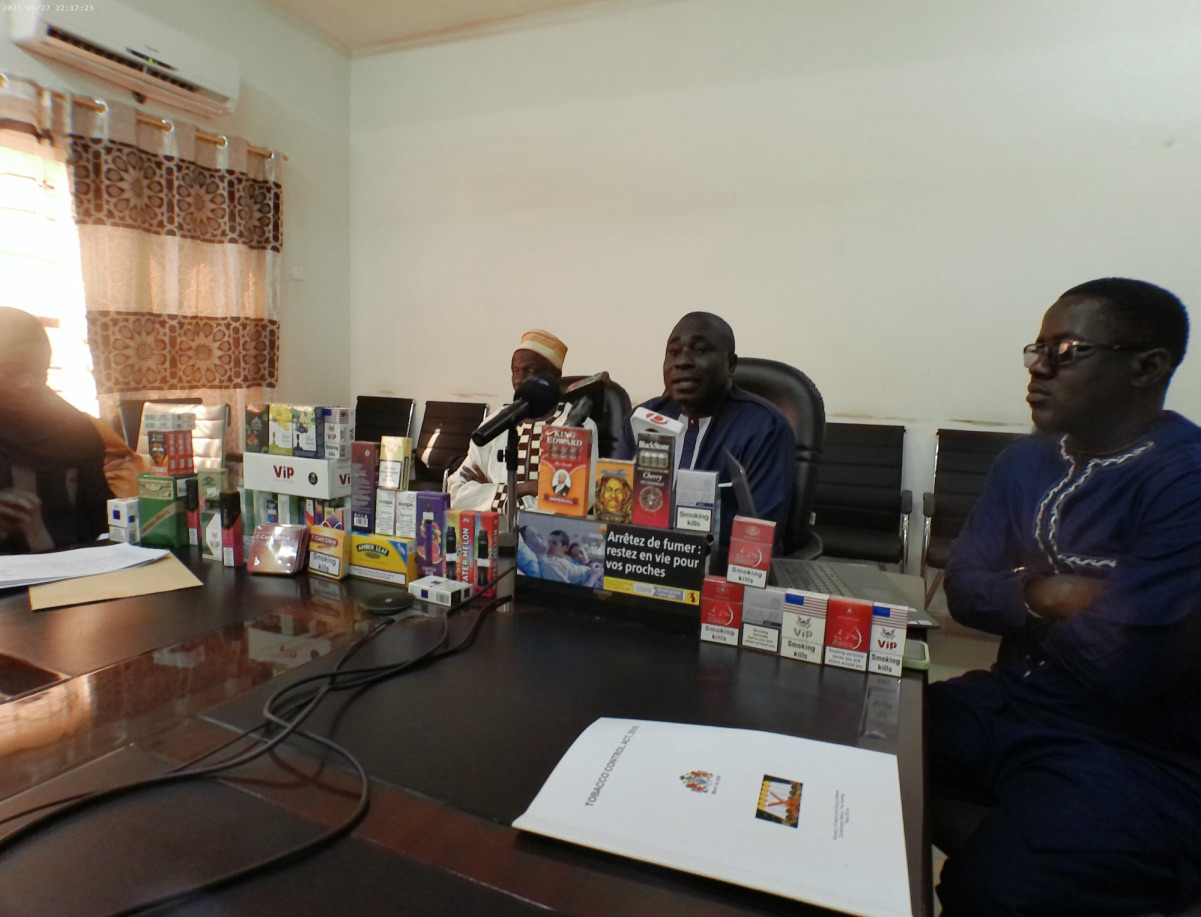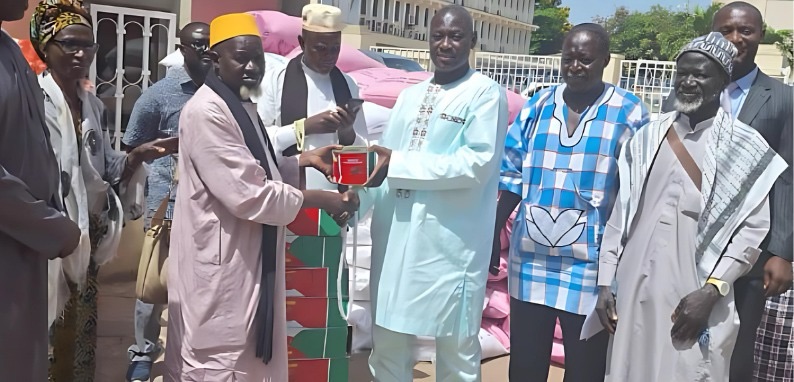By: Yunus S. Saliu
The Non-Communicable Disease (NCD) Unit of the Ministry of Health (MOH) and its partners on Friday held a press briefing to update the general public on the implications and recent enforcement of the Tobacco Act across the country.
The briefing was held at the Central Medical Stores in Kotu.
The enforcement was conducted by the officials of the NCD Unit of the Ministry of Health, GRA, NEA, and GPF.
Mr. Michael Mendy, Director of Health Promotion Education said it is their mandate to let the public have the information on the implementation of the Tobacco Act 2016 as it is laid down to implement the act through enforcement of it and engaging the public to understand the purpose of the act.
He said the Ministry has undertaken different activities to create awareness of the act and now it is time to let the public know what the Ministry has done, is doing, and the expected roles of the public.
“Thus, we have to join hands at different levels and play our roles to prevent all the harms and dangers imposed on the health of the people by the use of tobacco,” he pointed out.
He noted that the enforcement is not something new as it has been happening frequently and it will continue as everyone is aware that there is a Tobacco Control Act that needs to be enforced.
Meanwhile, he disclosed that the Ministry has been having a lot of community engagement on the smooth enforcement of the provision of the Act for the past three months or so.
Omar Badjie, NCD Program Manager and National Tobacco Focal Point said the press briefing is the quarterly meeting to inform about the latest development on the use of tobacco in the country.
He disclosed that tobacco control, especially this project is sponsored by the Management Scientist for Health, a Tobacco Policy Action for Africa project and it is meant for African countries, which about 5-10 African countries are benefiting from.
Mr. Badjie explained that it is the second time and second phase of the project in The Gambia, noting that the country might be lucky for the third phase thus it is a one-year project which the second phase started last year but will phase out in the next five, or six months.
He said the displayed tobacco products were confiscated from vendors through the joint effort of the public health officers, customs, police, and NEA. “Because they are mandated according to the Tobacco Act and control regulation for tobacco monitoring in this country,” he added.
According to him, some of the confiscated tobacco products are electronic cigarettes, which are completely banned from entering this country.
“Though shisha is not banned in the country, using it in public places is banned. Also, some of the cigarettes are those that do not conform to the graphic health warnings and health messages. And they are not to be displayed in public places or sold to minors,”he stated.
Dr. Muhammed Gassama said tobacco and health are irreconcilable, saying the sign has emerged and still emerging.
“So, tobacco is a killer. Those that use it nearly half of them die if they don’t quit,” he stressed.
He stated that companies manufacturing it know this and nearly 8 million people die every year as a result of tobacco consumption while he later dilated on different figures regarding using the tobacco products.
He noted that electronic cigarettes have about 16,000 different flavours which the manufacturers use to entice consumers to use them.
Mr. Seyfo, an NCD officer delivered a 31-page PowerPoint presentation on the health, socio-economic, and environmental impacts of tobacco and the enforcement of the Tobacco Control Act 2016 during the briefing.
Among the topics covered included the burden of the problem, tobacco burden in The Gambia, the prevalence of tobacco use in the country, and the use among adolescents, why tobacco kills, what tobacco use causes, the economic cost of tobacco, environmental impact, and Novel and Emerging Nicotine and Tobacco Products (NENTPS).




